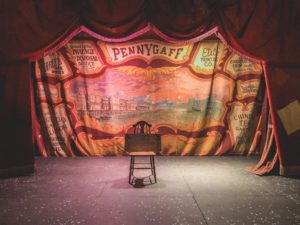No More: Off-Broadway Theaters Bring Litigation to Obtain the Same New York Reopening Rights Granted to Restaurants and Bowling Alleys
In late October, eight off-Broadway theaters, including The Actors Temple, Soho Playhouse, the Triad, and the New York Comedy Club, filed a lawsuit in Manhattan’s federal district court against Governor Andrew Cuomo, the New York Attorney General, and Mayor Bill de Blasio, seeking an order that would allow them to reopen their theaters with precautionary measures. On Tuesday of this week, the court confirmed that the New York defendants must respond to the theaters and explain to the court why it should not issue a preliminary injunction to stop the government from enforcing the continued shut down of small venue theaters in New York. The court also confirmed that it would hear the arguments on an expedited schedule, with the New York defendants being required to provide their response by November 20, 2020.
The theaters have been subjected to Executive Order 202.3, forcing them to shut down since March 16, 2020, but other hospitality end entertainment venues have since been allowed to reopen. The theaters argue that it simply isn’t fair that small theatrical venues with a maximum capacity for 199 seats, and a median capacity of only 144 seats, cannot reopen at all in New York City, even to capped audiences, while the government has allowed larger restaurants, gyms, bowling alleys and casinos to open since August or September, not to mention schools and colleges as well as “Saturday Night Live.” The theaters have argued to the court that the small venue theater industry generates $1.3 billion in total economic output, employs over 8400 full-time individuals and pays more than $512 million in wages.
The theaters argue that the New York defendants have violated the due process clause of the Fourteenth Amendment of the United States Constitution by denying them their constitutionally protected liberty and property interests without arbitrary governmental interference. Specifically, they argue that Governor Cuomo did not provide any procedural due process before issuing the executive shut down orders, nor did the orders allow for any mechanism of review after taking effect. The small theaters also argue that New York has violated the Equal Protection Clause of the Fourteenth Amendment of the U.S. Constitution and New York State Constitution by allowing some businesses to operate under the executive shut down orders while refusing to allow the small theaters to open despite them being similarly situated to those that have permission to do so.
With recent upticks in Covid-19 positivity in New York City, the government is considering whether to enforce additional closures, and so further reopening, as sought by the litigation, is not at the forefront of New York’s “to do” list. Also, the government is generally afforded legal deference in implementing emergency procedures, which does suggest the theaters could encounter an uphill battle. And it is hard to envision performers at the theaters, if open, wearing masks while performing, thus enabling the potential to expose others in these relatively small spaces. But on the other hand, the lawsuit does raise valid considerations about the State’s selective closure restrictions to date, which have shuttered the small theatrical venues for more than 240 days. The small off-Broadway theaters may be more capable of conforming to CDC health and safety guidelines than larger facilities, and they allege that they can comply with the enhanced social distancing rules that other open venues, such as restaurants and bowling alleys, have been operating under as required by New York’s reopening protocols. One could argue that the theaters are safer than restaurants as food and beverage consumption is not a necessary component of the theatrical experience, thus allowing patrons to wear masks inside at all times. Additionally, unlike Broadway theaters, off-Broadway theaters and other small theatrical venues can potentially break even or even turn a profit without having to fill a majority of the seats, thus giving them more ammunition to fight the closure.
The litigation is captioned The Clementine Company LLC d/b/a The Theater Center et al. v. Andrew M. Cuomo et al., Index No. 20-cv-08899, currently pending before the District Court for the Southern District of New York.
 Check out the Law Ally’s other topics. To receive the latest Law Ally post and news right to your inbox, subscribe and join its mailing list here.
Check out the Law Ally’s other topics. To receive the latest Law Ally post and news right to your inbox, subscribe and join its mailing list here.
